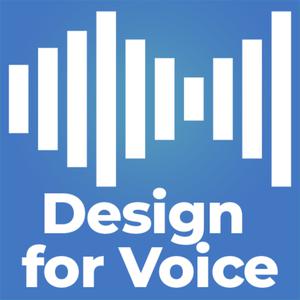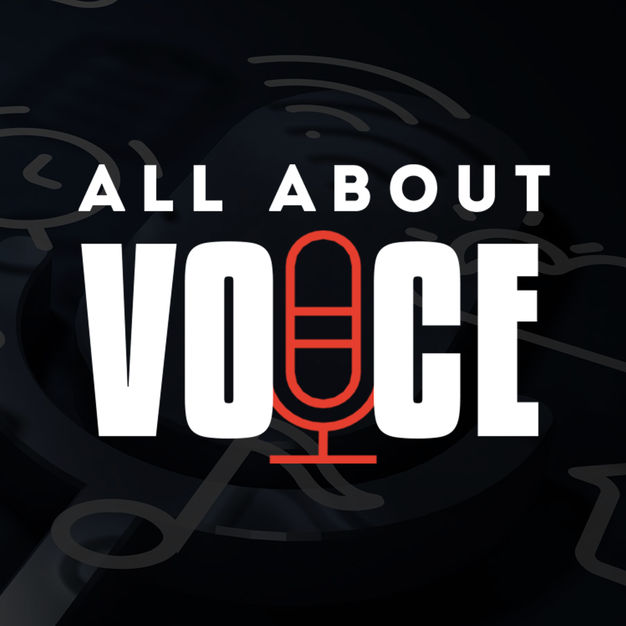
Design for Voice
Jeremy Wilken
Learn how to build quality voice experiences from industry leaders and pioneers with Design for Voice. The goal is to help designers, developers, and strategists with understanding what makes for good design practices and how to bring them to life. The show is hosted by Jeremy Wilken and includes guests from Google, Mule Design, VoiceFlow, Invoked Apps, Grand Studio and more. Support this podcast: https://anchor.fm/design-for-voice/support
- 35 minutes 52 secondsEthics in Voice - Brooke Hawkins
There are many different ethical issues that arise when computers behave or replace humans, and as designers and developers for voice we must be constantly thinking about the implications and side effects of our voice experiences. Brooke Hawkins joins this episode to tackle questions about how to identify ethical issues, think through them, and emphasizes the importance of bringing ethics up early and often.
19 December 2019, 11:03 pm - 33 minutes 26 secondsCustomizing Default Intents - Dustin Coates
Voice experiences have a number of default intents, such as yes/no, stop, cancel, and others. It is important for experiences to customize these default intents in ways that make sense for the context the user is in. Guest Dustin Coates shares a lot of ideas for how to customize these intents and what to consider to make optimal user experiences.
11 October 2019, 6:37 pm - 33 minutes 45 secondsVoice in the Car - Shyamala Prayaga
The car is a prime context for voice experiences, but it also comes with a number of unique challenges. Guest Shyamlala Prayaga shares a lot of key insights into the way to design for the car, including concepts around cognitive load requirements, regulation concerns, and design decisions.
13 September 2019, 1:45 am - 38 minutes 11 secondsDesign Tools and Tactics - Braden Ream & Michael Hood
Anyone learning about building and designing voice experiences needs to have a set of tools and tactics for approaching the design and iteration. In this episode with Braden Ream and Michael Hood, we dig into several of the primary tactics and tools available for designers today, including scripting, flowcharts, and more. You'll learn about the value of these different techniques and why you will most likely want to utilize more than one in your work.
21 July 2019, 6:33 pm - 34 minutes 58 secondsInclusive Voice Design - Diana Diebel
Voice experiences are extremely difficult to craft in a way that will be truly accessible and inclusive for all users. Problems can arise from things like cultural biases and local colloquialisms, social backgrounds, and accented language and terms, among others. In this episode, guest Diana Deibel joins to talk about how to raise awareness for these inclusive challenges and some tips on how to address them in your voice experiences.
21 June 2019, 10:51 pm - 34 minutes 35 secondsConversational Maxims - Erika Hall
Many of the conversational design principles are based on the idea of the cooperative principle, which states people work together cooperatively in conversation. The principle was defined by Linguist Paul Grice, and it is supported by four conversational maxims, with a fifth being added from linguist, Robin Lakoff. These simple maxims make the foundation for much of voice design. Erika Hall joins the show to give a detailed look at these maxims, which are the Maxim of Quality, Quantity, Relation, Manner and Politeness, and you'll learn how to apply these ideas into your conversational interfaces and experiences.
16 May 2019, 4:02 pm - 31 minutes 12 secondsBuilding Personas - Wally Brill
Wally Brill of Google describes how personas are an invaluable aspect to voice and conversational design because they provide a foundation to the rest of the design process and help unify a team around a consistent experience.
5 April 2019, 12:40 am - 34 minutes 49 secondsWhat's New in Design From Alexa Conf - Bradley Metrock
The 2019 Alexa Conference highlighted a number of interesting developments in the voice space, and Bradley Metrock joins the show to discuss how the boundaries are being pushed and what it means for voice design.
7 March 2019, 8:00 pm - 42 minutes 53 secondsUsing Story With Voice Experiences - Kevin Dusablon & Danielle Frimer
The utilization of story and characterization in voice experiences is highly underrated and a key piece of the development process for the team at Xandra, who share insights into their process and techniques and how they can apply to even individual developers.
23 December 2018, 2:46 pm - 37 minutes 12 secondsEnhancing Voice with a Screen - Mark TuckerAs more voice devices are built with screens, our voice experiences need to be designed with screens in mind. My guest, Mark Tucker, talks through many considerations and provides tips for how to design and build multimodal experiences that use the screen to enhance a voice experience.6 December 2018, 11:03 am
- 39 minutes 54 secondsHigh Density Experiences - Felicia Wong & Antoine RauxVoice experiences today are fairly linear and shallow with their ability to handle tasks, and guests Felicia and Antoine share how to think about building high density experiences that more closely align with how people actually converse. The technology today already enables us to build these experiences but the techniques for design and challenges of implementation are still making it difficult to build with high density.23 November 2018, 2:38 pm
- More Episodes? Get the App
Your feedback is valuable to us. Should you encounter any bugs, glitches, lack of functionality or other problems, please email us on [email protected] or join Moon.FM Telegram Group where you can talk directly to the dev team who are happy to answer any queries.
 The Alexa Podcast
The Alexa Podcast
 All About Voice – Podcast zu Voice Assistants wie Alexa & Google Assistant
All About Voice – Podcast zu Voice Assistants wie Alexa & Google Assistant
 On-Chain Experiments
On-Chain Experiments
 VUX World
VUX World
 Voice Tech Podcast
Voice Tech Podcast
 Inside VOICE
Inside VOICE